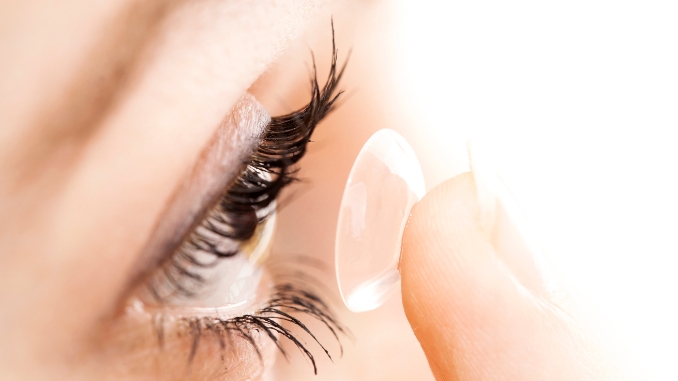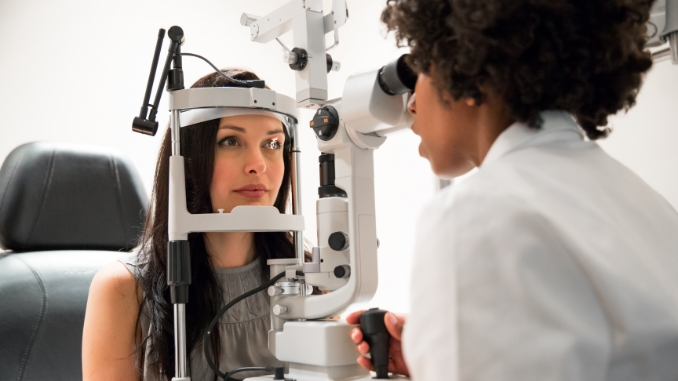Burning eyes can be a familiar and uncomfortable sensation that many people experience at some point. A feeling of irritation, itchiness, or a burning sensation in the eyes characterizes it. Various factors, including environmental conditions, such as dry air or exposure to irritants like smoke or dust, can cause this discomfort.
It can also be a symptom of certain medical conditions, such as allergic conjunctivitis, or dry eye syndrome. Understanding the burning eyes causes and potential remedies for burning eyes is essential to alleviate the discomfort and improve overall eye health.
Common Causes of Burning Eyes
Burning eyes can be a common complaint among individuals, and several potential causes exist for this uncomfortable sensation.
- Exposure to irritants such as smoke, dust, or chemicals is one of the causes of burning eyes. These substances can cause inflammation and irritation of the eyes, leading to a burning feeling.
- Allergies can also cause burning eyes. When an individual is exposed to pollen or pet dander, the body releases histamines, which can cause itching, redness, and burning in the eyes.
- Eye strain from excessive computer or screen use can also lead to burning eyes. Staring at a screen for longer can cause the eyes to dry and strain, resulting in discomfort and a burning sensation.
There are several potential causes of burning eyes, and it is important to identify the underlying cause to find appropriate treatment and relief.
Dry Eye Syndrome and its Link to Burning Eyes
Dry eye syndrome is typical when the eyes struggle or do not produce enough tears or rapid tear evaporation, leading to different uncomfortable symptoms, including burning eyes. The link between dry eye syndrome and burning eyes is due to the lack of moisture on the eye’s surface.
When the eyes are not properly lubricated, they can become irritated and inflamed, resulting in a burning sensation. This condition can also affect eye motion and the pupils reaction to light, as dryness may hinder the eye’s smooth movement and the pupils’ normal response to changes in light.
Factors exacerbating this include dry environments, prolonged computer use, and wearing contact lenses, which can further strain the eyes and affect their normal functions. Treatment options for dry, red, and painful eye syndrome include artificial tears and lifestyle changes.
In some cases, prescription medications, aim to restore moisture and ensure the proper function of the eyes.
Environmental Factors That Can Cause Burning Eyes
Several environmental factors can cause burning eyes. One of the most common is exposure to air pollution. The presence of pollutants in the air, such as smoke, dust, and chemicals, can irritate the eyes and lead to a burning sensation.
Additionally, dry air can also contribute to eye irritation. When the air does not have enough moisture, it can cause the eyes to become dry and uncomfortable. Other factors that may cause burning eyes include exposure to strong sunlight, allergens such as pollen or pet dander, and irritants like chlorine in swimming pools.
It is vital to protect our eyes from these environmental factors by wearing sunglasses, using eye drops for lubrication, and also avoiding excessive exposure to pollutants.
Digital Eye Strain and its Impact on Eye Health
Digital eye strain (computer vision syndrome) is an illness that affects individuals who spend excessive amounts of time on screens. When using digital screens, we tend to blink less frequently, leading to dry eyes.
The blue light emitted by these screens can damage the retina over time. This can increase the danger of developing age-related macular degeneration and other vision problems.
The prolonged exposure can cause many uncomfortable symptoms, including dry eyes, blurred vision, headaches, and neck and shoulder pain. While digital eye strain is a temporary condition that does not typically cause long-term damage, it can significantly impact eye health if left untreated.
Additionally, using specialized computer glasses or adding blue light filters to screens can also help reduce eye strain and protect eye health. Regular eye exams are also crucial in detecting any underlying vision problems and addressing them promptly.
By taking these preventive measures and adopting healthy habits, individuals can mitigate the impact of digital eye strain and maintain good eye health.
Other Medical Conditions Associated with Burning Eyes
Burning eyes can be associated with various medical conditions, and it’s essential to consult a doctor for a proper diagnosis and treatment. Some potential causes of burning eyes include:
- Allergies: Allergic reactions to pollen, dust, pet dander, or other environmental allergens can cause burning eyes.
- Bacterial Conjunctivitis (Pink Eye): pink eye symptoms include a rash of the conjunctiva, the thin membrane covering the white part of the eye, which can lead to redness, itching, and a burning sensation.
- Blepharitis: Inflammation of the eyelids, particularly at the base of the eyelashes, can cause burning, itching, and redness.
- Contact Lens Issues: Improper use, dirty lenses, or an allergic reaction to lens solutions can also lead to discomfort and burning in the eyes.
- Corneal Abrasions: Scratches on the cornea, the clear front part of the eye, can cause a burning sensation and other symptoms like pain and sensitivity to light.
- Environmental Factors: Exposure to smoke, pollution, or strong winds can irritate the eyes and cause a burning sensation.
- Computer Vision Syndrome: Longer exposure to digital devices can also lead to eye strain, dryness, and a burning sensation.
- Foreign Body Sensation: The feeling of having something in the eye, even if there isn’t, can cause discomfort and a burning sensation.
- Systemic Conditions: Certain systemic conditions, such as autoimmune diseases or thyroid disorders, can manifest with eye symptoms, including burning.
- Medication Side Effects: Some medications may have side effects, causing eye irritation and a burning sensation.
- Ocular Rosacea: A subtype of rosacea that affects the eyes and eyelids, leading to symptoms like dryness, itching, redness, stinging, sensitivity to light, and a gritty eye feeling.
If you are experiencing constant or severe burning in your eyes, seeking medical attention is crucial. An eye examination by a healthcare professional or an ophthalmologist can also help identify the underlying cause and guide appropriate treatment.
Prevention and Management Strategies
Burning eyes can result from various factors, including environmental irritants, allergies, eye strain, or underlying health conditions. Here are some prevention and management strategies to alleviate burning eyes.
Prevention
1. Eye Hygiene
Wash your hands regularly to prevent transferring irritants to your eyes. Do not touch or rub your eyes, as this can exacerbate irritation.
2. Environmental Modifications
A humidifier can maintain proper humidity levels, especially in dry environments.
To reduce allergen exposure, keep your windows and doors shut during high pollen seasons. Using protective eyewear when the eye irritates, such as when cooking or working with chemicals.
3. Computer and Screen Use
Follow the 20-20-20 rule: Look at something 20 feet away for 20 seconds. Do this every 20 minutes to reduce eye strain. Adjust screen font size, brightness, and contrast to minimize eye strain.
4. Allergen Management
Identify and avoid known allergens that trigger eye irritation. Consider using allergen-proof pillows and mattress covers.
5. Eye Protection
Wear sunglasses that provide UV protection to shield your eyes from harmful sun rays. Use protective eyewear in dusty or windy environments.
Management
1. Artificial Tears
Use lubricating eye drops (artificial tears) to moisten and soothe dry or irritated eyes.
Choose preservative-free drops if you need to use them frequently. Baby shampoo is often recommended as a part of eyelid hygiene for individuals suffering from dry eye syndrome or experiencing burning eyes.
2. Cold Compress
Apply a cold compress over closed eyes to reduce inflammation and soothe burning sensations.
3. Warm Compress
Use a warm compress for dry eyes to help unclog blocked glands and improve tear quality.
4. Blinking Exercises
Practice regular blinking to keep the eyes moist and prevent dryness.
5. Anti-allergy Medications
Take over-the-counter antihistamine eye drops or herpes antibiotic eye drops if allergies contribute to eye burning.
6. Rest Your Eyes
Ensure adequate sleep to reduce eye strain and fatigue.
7. Hydration
Stay well-hydrated to support overall eye health and maintain proper tear production.
8. Reduce Screen Time
Limit the time spent on digital devices to prevent digital eye strain.
9. Adjust Lighting
Ensure proper lighting to reduce glare and avoid harsh lighting conditions.
If burning eyes persist despite these strategies, seek professional medical advice.
When to Seek Medical Help
While many cases of burning eyes can be managed with home remedies, there are situations where it is advisable to see an eye doctor promptly. Here are some signs and symptoms that also indicate you should consult a healthcare professional:
- Persistent Symptoms – If the burning sensation in your eyes persists longer despite trying home remedies.
- Severe Pain or Discomfort – Intense or severe pain in the eyes.
- Changes in Vision – If you experience sudden changes in vision, such as blurriness, double vision, or other visual disturbances.
- Eye Injury – If you’ve sustained an eye injury, this may cause burning and potential damage to the eye.
- Eye Discharge – If there is a yellow or green discharge from the eyes. It may indicate an infection that requires medical attention.
- Light Sensitivity (Photophobia) – Increased sensitivity to light, especially if accompanied by other symptoms, may indicate an underlying issue.
- Swelling or Redness – Persistent swelling or redness around the eyes may indicate an allergic reaction, infection, or other eye conditions.
- Foreign Body Sensation – If you feel as though there is something in your eye and flushing it with clean water doesn’t resolve the issue, seek professional help.
- Underlying Health Conditions – If you have pre-existing health conditions such as diabetes or autoimmune disorders, or if you are on medications that may affect your eyes.
- Recent Eye Surgery – Contact your eye surgeon if you have undergone eye surgery recently and experience persistent burning or discomfort.
- Systemic Symptoms – If burning eyes are accompanied by other systemic symptoms like fever, headache, or fatigue, it may indicate a broader health issue.
Remember that self-diagnosis and self-medication may not always be appropriate, especially when it comes to eye health.
It’s essential to consult an optometrist or ophthalmologist for a proper diagnosis and appropriate treatment. Early diagnosis can prevent complications and ensure the best care for your eyes.
Conclusion: Taking Care of Your Eyes and Preventing Burning Eyes
We must prioritize our eyes health by taking preventative measures to avoid eye conditions like burning eyes. Regular eye care practices such as taking breaks from screens, practicing the 20-20-20 rule, and ensuring proper lighting can help alleviate eye strain and discomfort.
Maintaining a balanced diet high in vitamins A, C, and E and omega-3 can also support optimal eye health. It is also crucial to wear sunglasses with UV protection when exposed to the sun’s harmful rays.
Lastly, regular check-ups with an eye care professional can detect any underlying eye conditions early on and ensure prompt treatment. By introducing these habits into our daily routine, we can safeguard our eyes and prevent burning eyes.
According to a recent study, around half of the vision impairment in the world is preventable. The National Institutes of Health reports that up to 80% of blindness is also preventable. So, get the 14-Day Eye Health Quick Start Program today!

Rick Kaselj MS, is a leading kinesiologist and injury specialist as well as co-creator of the best-selling Unlock Your Hip Flexors program. Rick creates exercise programs that help people heal injuries and eliminate pain, so they can go back to living a full, active, healthy life.













